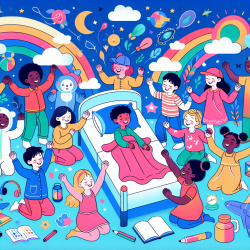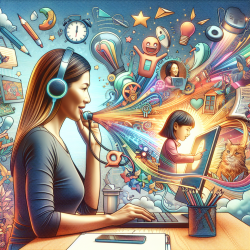Introduction
The COVID-19 pandemic has profoundly impacted the mental health of children worldwide, with increased levels of anxiety and depression reported among school-aged children. As schools and educators grapple with these challenges, innovative approaches to support students' mental health are essential. A recent study, "Online Art Therapy in Elementary Schools During COVID-19," sheds light on the potential of art-based interventions to enhance children's well-being.
The Study at a Glance
The study explored the effects of two online art therapy interventions—emotion-based directed drawing and mandala drawing—on elementary school children's mental health. Conducted during the pandemic, the research aimed to assess the feasibility and impact of these interventions on symptoms such as anxiety, depression, inattention, and hyperactivity.
Key Findings
The research revealed several significant outcomes:
- Inattention Reduction: The emotion-based directed drawing intervention showed a notable decrease in inattention symptoms among participants.
- Hyperactivity Improvement: Both interventions led to a reduction in hyperactivity levels, highlighting their potential to alleviate psychological distress.
- Feasibility: The study confirmed the feasibility of implementing these interventions online, providing a scalable solution for schools.
Practical Implications for Practitioners
For practitioners seeking to enhance their skills and support students' mental health, the study offers valuable insights:
- Incorporate Art-Based Interventions: Implementing art therapy sessions, even online, can provide students with a creative outlet to express emotions and improve focus.
- Tailor Interventions: Consider customizing interventions to address specific symptoms, such as using emotion-based drawing for inattention or mandala drawing for general mental health support.
- Encourage Group Discussions: Facilitating discussions around the art can help students process their emotions and foster a supportive classroom environment.
Encouraging Further Research
While the study provides promising results, further research is needed to explore the long-term effects of these interventions and their applicability in diverse educational settings. Practitioners are encouraged to contribute to this growing field by conducting their own studies and sharing findings with the educational and mental health communities.
Conclusion
Online art therapy presents a compelling avenue for supporting children's mental health during challenging times. By integrating these creative interventions into school curricula, educators can help students navigate their emotions and enhance their overall well-being.
To read the original research paper, please follow this link: Online art therapy in elementary schools during COVID-19: results from a randomized cluster pilot and feasibility study and impact on mental health.










